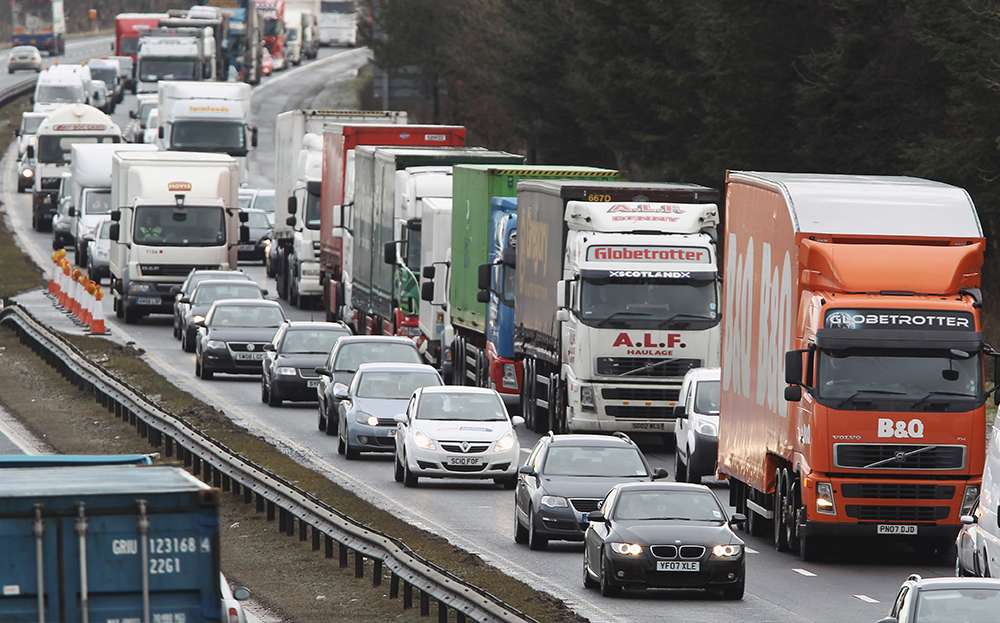News: Government to raise speed limit for lorries as safety group calls for its reduction
Speed limit to rise from 40mph to 50mph

DRIVERS ARE be less likely to find themselves stuck behind dawdling lorries after the government announced that it would increase the speed limit for trucks on single-carriageway roads from 40mph to 50mph.
The plans are aimed at speeding up journey times and reducing the number of accidents on rural roads, caused by other traffic overtaking slow-moving HGVs. Cars and vans are able to travel at 60mph on single-carriageway roads, 20mph faster than the current speed limit for lorries.
Road haulage groups have welcomed the proposals, which are predicted to save £11m in reduced journey times, but road safety groups say that the change will increase accidents. They say that cars will continue to overtake lorries, which will still be forced to travel below the national speed limit, but the manoeuvre will take longer, as the trucks will be travelling faster.
Brake, which campaigns for safer roads said that the best way of cutting accidents on rural roads would be to cut the speed limit for cars instead.
Claire Perry, the transport minister, announced the change, which applies to lorries weighing over 7.5 tonnes and will come into force in early 2015. The government also hopes to increase the speed limit for HGVs on dual carriageways from 50mph to 60mph at the same time.
“Speed limits for lorries have been stuck in the 1960s,” said Perry. “This change will remove a 20mph difference between lorry and car speed limits, cutting dangerous overtaking,”
Brake criticised the decision and said a narrowing of the gap between car and lorry speeds would not discourage dangerous overtaking by impatient drivers. “We are disappointed and concerned by this announcement,” it said. “The road safety justification is dubious: we are not aware of evidence it will help address risky overtaking. This threatens to make the problem worse.”
At the same time as the Department for Transport announcement, Brake coincidentally launched a campaign to cut the national speed limit on rural roads for cars and vans. It wants the maximum speed limit to be reduced to 50mph. According to a survey it has carried out, drivers admit using the roads like race tracks. It says that while rural roads may be quieter than urban roads, they are actually more dangerous and experience a higher number of accidents.
Figures from the Department for Transport (DfT) show that in 2013, car occupants were almost twice as likely to be killed on a country road than an urban road. Last year, 895 people were killed on non-built-up roads, a rise of 1% on 2012, and 6,554 seriously injured.
Despite this, Brake says that drivers still believe that because they are quieter, rural roads are safer. As a result, drivers admit to driving faster and taking more risks. According to its survey, one in three drivers admitted to driving too fast for safety on country roads by speeding, taking bends too fast or overtaking.
The charity says fast driving affects other road users, too, with nearly half of respondents saying they had a near-miss while driving, walking or cycling.
Julie Townsend, the deputy chief executive of Brake, said: “We hear constantly from people in rural areas whose communities are blighted by fast traffic. They shouldn’t have to contend with drivers treating the roads as their personal race track.”
Click here to search for used cars on driving.co.uk




